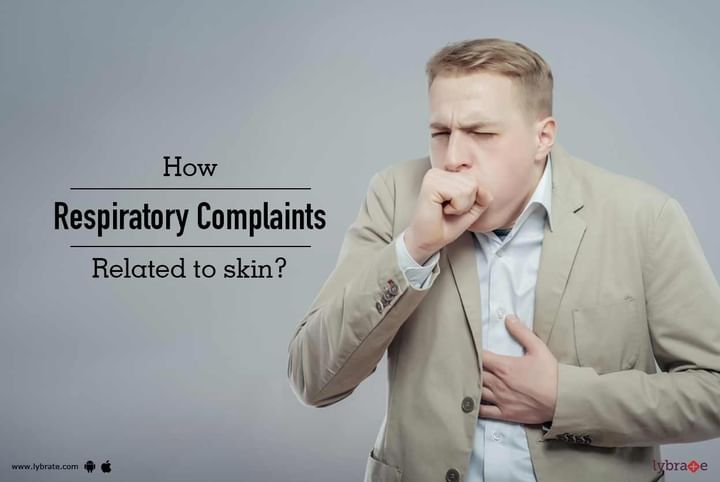How Respiratory Complaints Related to Skin?
Do you know that there are certain substances, which may cause respiratory and skin problems? Substances while at work may lead to the development of allergies when breathed in. Allergies may also occur when the substances are exposed to the skin directly. These substances are known as skin and respiratory sensitizers and are capable of causing damage to the nose, skin, throat and lungs. If you are affected in any way, further exposure to sensitizers may lead to allergic symptoms.
Effects of skin and respiratory sensitizers
The effects on the respiratory system may be experienced in the form of symptoms, such as runny or itchy eyes and nose, which is typical of hay fever. More symptoms may follow which include wheezing, breathlessness, coughing and chest tightness. The symptoms in case of skin include itchy, red, dry and cracked skin with irritation. Severe symptoms like bleeding might follow and the symptoms may spread to the different parts of the body.
When do the symptoms occur?
The symptoms show up on being exposed to the substance. In most cases, sensitization occurs within a few months. The symptoms may be experienced even twelve years after the exposure. The symptoms are more severe during evening and night. There are chances of the symptoms improving during weekends and holidays. Once established, respiratory attacks may occur, triggered by exposure to tobacco smoke, cold water and exercise. Attack on skin commonly occur when exposed to chemicals present in the cleaning products.
Substances causing sensitization
The substances, which cause skin sensitization include isocyanates, wood dust, flour and grain dust, solder flux, glues and resins, laboratory animals glutaraldehyde and chemicals used in hairdressing.
Legal obligations associated with skin and respiratory sensitisers
There are certain legal duties, which an employer should undertake for protecting employees. These include protecting workers and public from risks which are associated with skin and respiratory sensitizers. The Control of Substances Hazardous to Heath Regulations lay out the legal requirements in order to protect workers. In order to comply with it, an employer has to assess the risk of health which may arise from activities at work. The employer also needs to decide the precautions which should be taken to prevent or control any risk. It is also to be ensured that control measures are utilised and maintained well. The workers’ exposure to harmful fumes and substances should be monitored constantly. The workers should also be informed, instructed and trained about the risks associated with their work.
According to homeopathy, when a patient suffers from cold, his body will develop skin complaints at times. It’s a way to get rid of internal affection in respiratory system. People usually misunderstand such cold, as another skin disease. However, neither the cold nor the skin complaint will get cured. The patient will be declining day by day. Similarly, if there are skin diseases, when suppressed, affect internal organs. Skin disease is not a health hazard unless it becomes septic. If you experience any symptoms associated with skin and respiratory sensitizers, it is important for you to visit a homeopath. This would enable timely diagnosis and treatment. If you wish to discuss about any specific problem, you can consult a doctor and ask a free question.



+1.svg)
